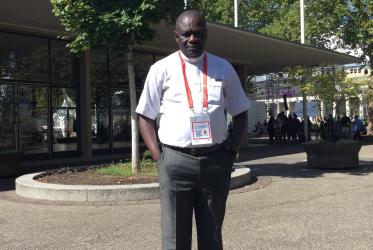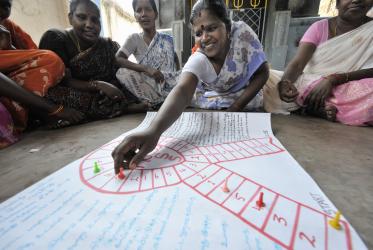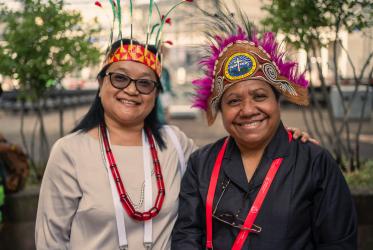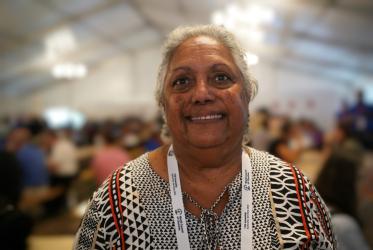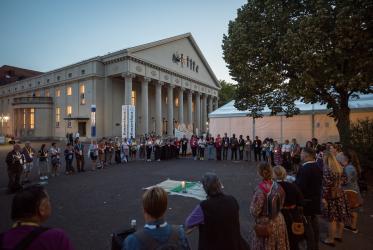Displaying 141 - 160 of 1180
La respuesta a las necesidades humanitarias en Ucrania
27 September 2022
Assembly workshop looked toward ending AIDS epidemic by 2030
19 September 2022
Ukraine: Responding to humanitarian need
08 September 2022
Promoción de la dignidad humana a través del arte
07 September 2022
Promoting human dignity through art
06 September 2022
Indigenous women struggle for identity in Asia and beyond
05 September 2022
Elijamos el poder del amor: las preasambleas formulan enérgicos llamados
02 September 2022
Women with disabilities want to belong in churches
31 August 2022
EDAN Pre-Assembly starts with induction of new members
29 August 2022
